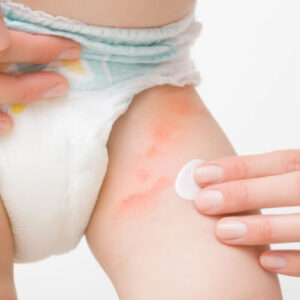Allergic Reaction: Your Complete Guide
allergic reaction (Allergic reaction) or hypersensitivity reactions are abnormal reactions of the body’s immune system to a normally harmless substance. Learn about the symptoms, causes and methods of treating allergic reactions in the following lines:
What are the causes of allergic reactions?
When a person is exposed to allergens, the immune system recognizes them as harmful substances, and secretes antibodies which are proteins that send a message to the cells to stop this substance, the cells send histamine that causes blood vessels to dilate, in addition to other chemicals that lead to the appearance of allergy symptoms.
These antibodies target one type of allergen, which explains why someone is allergic to peanuts, for example, but not eggs.
It is not yet known why some people develop an allergic reaction, but it seems that allergies run in families, meaning that if a family member suffers from allergies, the person becomes more susceptible to infection.
Some common allergens include:
- Animal scales.
- Certain medications, especially penicillin or penicillin-based antibiotics.
- dust mite
- Certain foods, such as: peanuts, fish, shellfish, eggs, milk, wheat and soybeans.
- Insect bites, such as bee or wasp stings.
- mold.
- Latex and other materials that come into contact with it.
- plants and pollen.
What are the symptoms of allergic reactions?
Symptoms vary from mild to severe. When exposed to allergens for the first time, the allergic reaction is mild, and these symptoms worsen if the allergy is repeatedly exposed. These are the prominent symptoms of some common allergies:
-
Symptoms of allergic rhinitis
It is also known as hay fever, and these are the most prominent symptoms:
- Itchy nose, eyes and roof of the throat.
- Runny or stuffy nose.
- sneezing.
- Tears and red or swollen eyes.
-
Food allergy symptoms
A food allergy causes:
- Tingling sensation in the mouth.
- Swelling of the lips, throat, tongue or entire face.
- urticaria;
- Anaphylaxis, an excessive and severe allergic reaction that requires immediate treatment.
-
Symptoms of drug allergy
include:
- Itchy skin.
- Flowering.
- swelling of the face;
- urticaria;
- whistles;
- Anaphylaxis.
-
Symptoms of allergy to insect bites
include:
- Significant swelling in the sting area.
- Itching all over the body.
- Shortness of breath, coughing or wheezing.
- Anaphylaxis.
-
Skin allergy symptoms
This is known as atopic dermatitis or eczema, and causes the following symptoms:
- itching
- redness.
- crust appearance;,
Diagnosis of allergic reactions
The doctor will ask the patient a series of questions about the symptoms, in addition to performing a physical examination and instruct the patient to keep a detailed daily record of the symptoms and possible triggers. The doctor may also order one of the following two tests:
1. Blood tests
Your doctor may order immunoglobulin E tests, called partial sensitivity tests, which measure the amount of antibodies to allergens in your bloodstream called immunoglobulin E antibodies, and send a sample to a lab to test for sensitivity to potential allergens.
2. Skin test
In this test, the doctor pricks the skin, exposing it to small amounts of proteins found in common allergens, and keeps a rash at the test site.
Treatment of allergic reactions
In fact, a mild allergic reaction does not require any medical treatment, in most cases, over-the-counter antihistamines, such as diphenhydramine, are effective in controlling mild allergic reactions. Severe allergic reactions require immediate medical attention, and are often treated with emergency allergy medications known as epinephrine shots.





